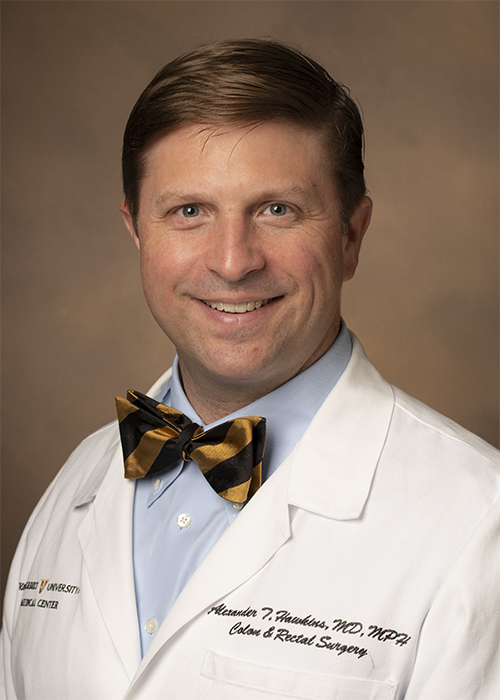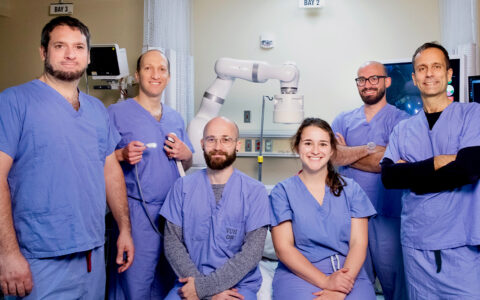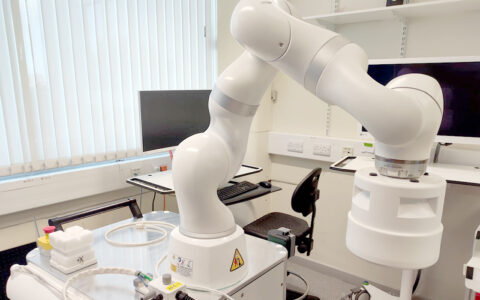Diverticular disease affects more than 30 percent of individuals over age 65, and 70 percent of those over age 80. Approximately one in 20 patients advance into acute or chronic diverticulitis, according to the National Institute of Diabetes and Digestive and Kidney Diseases. The high prevalence of recurrent diverticular disease in a growing aging population highlights the need for clear, evidence-based treatment guidelines, particularly to aid the choice between surgery and non-operative management.
“At this point, there is no great answer as to who will benefit from surgery and who will in fact suffer the consequences of surgery, without sufficient benefit.”
“At this point, there is no great answer as to who will benefit from surgery and who will in fact suffer the consequences of surgery, without sufficient benefit,” said Alexander Hawkins, M.D., a colorectal surgeon and assistant professor in the Division of General Surgery, Colon and Rectal Surgery, at Vanderbilt University Medical Center. “American Society of Colon and Rectal Surgeons guidelines for diverticulitis now state that the decision to proceed with a sigmoid resection should be based on discussion between the patient and a surgeon. Essentially, that’s no guideline at all.”
Hawkins will lead a new NIH-funded research project at Vanderbilt to better inform how physicians evaluate surgery for recurrent diverticular disease. The study will be unique not only in establishing an evidence-based model that is currently lacking, but also in its methodology. “We are going to use both qualitative and quantitative research methods. In addition, our longitudinal study will employ patient-reported outcomes as the primary outcome of interest. A long-term study of this kind is uncommon given the significant resources required,” said Hawkins.
Data Collection
The first part of the Vanderbilt study, which is currently recruiting, will include a series of qualitative interviews with patients and surgeons. Focus groups will include patients who have and have not undergone sigmoid resection for recurrent diverticular disease. Physician interviews will include colorectal-trained and general surgeons from across the country.
“We’ll ask patients and surgeons a similar set of questions,” Hawkins said. “’What are the criteria you used to consider diverticular resection?’, ‘What were your expectations?’, ‘What did you anticipate about the surgery?’, ‘What was the outcome compared to your expectations?’”
In a second, prospective arm of the study, Vanderbilt will partner with Washington University in St. Louis and the University of Michigan to track patient-reported outcomes from diverticular resection in a cohort of approximately 120 patients, over the course of one year.
Hawkins will use the two components of the study to develop a more structured framework for evaluating appropriateness for surgery. “We’d like to come up with a nuanced score or measure to judge the severity and impact of diverticular disease on an individual patient’s life. Then, you could stratify them and identify who would benefit from surgery,” Hawkins said. “That tool could be used not only by colorectal surgeons, but also by primary care physicians and gastroenterologists. With diverticulitis affecting over a third of a third of patients over 65, a lot of physicians are treating this disease.”
Improving Patient Recoveries
“The perioperative enhanced recovery program bundles a collection of best practices that reduce the amount of trauma patients experience after surgery and quicken their recovery.”
As a colorectal surgeon, Hawkins has helped lead other research at Vanderbilt to develop evidence-based best practices for post-operative care. “Our perioperative enhanced recovery programs are an area of innovation that has really benefitted our patients in the past five years. This program bundles a collection of best practices that reduce the amount of trauma patients experience after surgery and quicken their recovery,” Hawkins said.
Vanderbilt’s colorectal team will publish details of their initial five-year project developing enhanced recovery protocols in a forthcoming issue of Surgical Endoscopy. “We’re moving into the second phase of this program now, and we’re really excited about it,” said Hawkins.
“Whether it is determining who will benefit from resection for their diverticular disease or helping patients recover easier and faster after surgery, our focus is on the patient and continually improving their care.”





